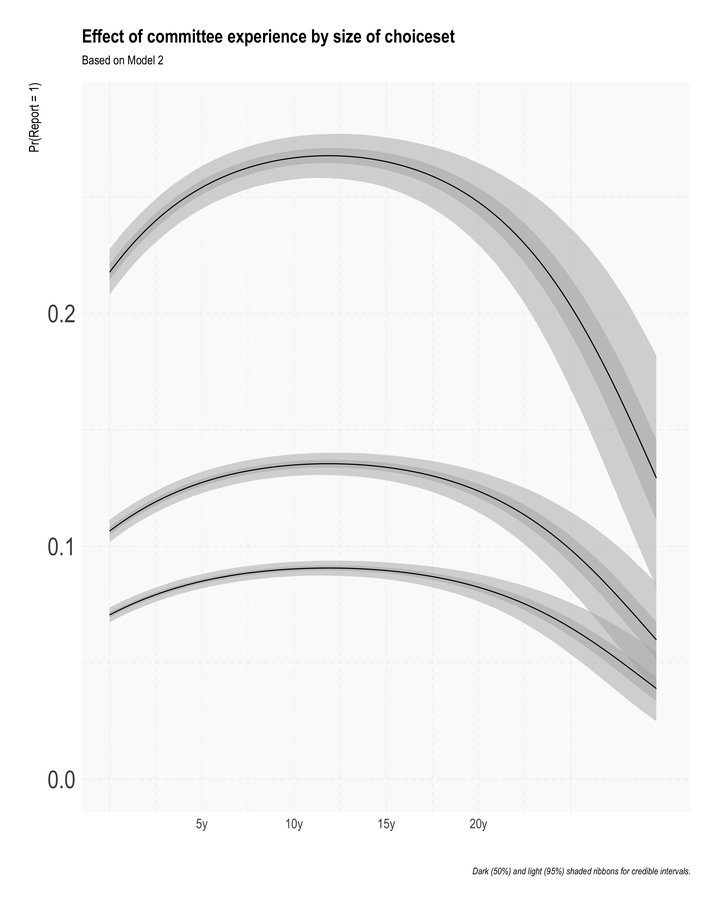Delegation of committee reports in the European Parliament

Abstract
Committee coordinators face a classic delegation problem when assigning reports to their committee members. Although few theoretical developments have focused on the effects of expertise on delegation, empirical studies have commonly assumed monotonic effects. Based on the theoretical model by Fischer and Stocken (2001), we argue that more expertise, holding preference divergence constant, has a non-monotonic effect on the probability of being appointed as a rapporteur because of informational credibility. Employing accumulated committee service as an expertise measure, we test this theoretical expectation on all committee report delegations in the European Parliament from 1979 - 2014. Across both nonparametric and parametric hierarchical conditional logit models we find support for this non-monotonic effect. The results hold across member states, political groups, procedures, committees, and over time.
Outreach
A popularized version of the paper is featured on LSE’s EUROPP-blog: “A question of trust: Intra-party delegation in the European Parliament”.
Reference
- Chiou, Fang-Yi, Hermansen, Silje Synnøve Lyder and Bjørn Høyland (2020) “Delegation of Committee Reports in the European Parliament” European Union Politics, 21(2), 233-254.